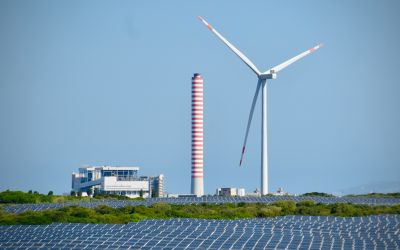$100bn climate finance pledge needs support from banks and private sector
WRI study says international pledge is unlikely to be realised if only funding from wealthy country’s is counted

An international pledge to provide $100 billion a year for developing nations to combat climate change is unlikely to be realised if only funding from wealthy country’s is counted, according to a new study.
The newly released study from the World Resources Institute (WRI) said a combination of finance sources would be needed to achieve the target including multilateral development banks and the private-sector.
Climate finance could total between $109 billion to $155 billion in 2020 if the various sources are leveraged, the paper said.
The Green Climate Fund was established in 2010 at the 16th Conference of the Parties to the UN Framework Convention on Climate Change (UNFCCC) climate conference in Cancun, Mexico, to scale up climate change mitigation and adaptation projects in vulnerable, developing nations.
The Cancun Agreements specified that a significant share of new multilateral funding for climate action should flow through the GCF.
Some developing countries have argued that the finance should be provided solely by developed nations, even though the original promise called for funding from a range of sources.
The WRI paper was released on Wednesday during U.N. climate negotiations in Bonn, Germany.
The paper found that in 2012, developed countries contributed $17 billion in climate finance, while development banks gave $15 billion and private-sector investment reached between $26 billion and $42 billion.
The GCF has now formally reached ‘effectiveness’ after a $1.5 billion pledge from Japan and can begin the critical phase of considering funding proposals with a view to submit initial projects to the Fund’s Board later this year, ahead of the COP 21 climate summit in Paris.
Achieving the 50 per cent threshold was a necessary requirement set by the Fund’s governing Board to declare the Fund effective.
To accelerate private sector investment in low-emission, climate-resilient activities, GCF’s Private Sector Facility will work closely with international businesses, capital markets and the private sector in developing countries.
In its recent Impact Analysis, the Fund identified strategic priority areas and global investment opportunities which are not adequately supported by existing climate finance mechanisms, and that can be used to maximise GCF’s impact, in particular investments into efficient and resilient cities, land-use management and resilience of small islands.
Ms. Cheikhrouhou added: “Governments that have not yet pledged to the Fund are encouraged to step forward. All other governments that have not yet signed their agreement with the Fund should do so urgently.”






